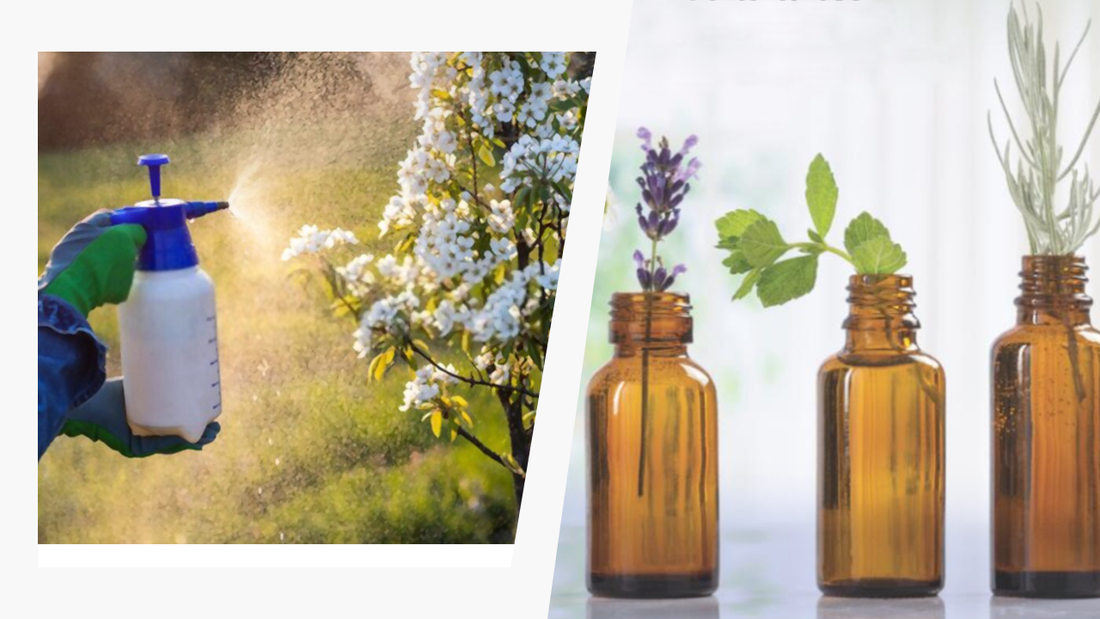A wide variety of pesticides are used in agriculture and food production to control pests. Some insect species have developed high-level resistance to synthetic pesticides because they present severe toxicity (residual), as well as contamination of the environment. Many countries have banned or restricted these agrochemicals as a result, reducing the number of pesticides that can be used in agriculture, particularly for crops exported to European and Asian markets with green markets. Since essential oils (EOs) are renewable, natural, biodegradable, non-permanent in the environment, and safe for non-target organisms and humans, they are increasingly being studied as bioinsecticides. Today, pesticide agent manufacturers
not only use essential oils for fragrance but also their biochemical activity against pests.
Use of essential oils for fragrance and other properties
There has been tremendous growth in interest in the discovery and development of plant essential oils as bioinsecticides in the past 20 years. In spite of this large body of research, crop protection products derived from essential oils have yet to be successfully commercialized and utilized, primarily because, except for the USA and Australia, such products are not given special status by regulatory agencies that approve new pesticides. However, these oils can still be used for fragrance in this industry.
Insecticides based on essential oils have been used in the United States for more than a decade, and more recently have been used in the European Union (EU), Korea, and numerous other countries with proven effectiveness against numerous pests and many different crop systems. The majority of these products are made from commodity essential oils that were developed as flavoring and fragrance agents for food and cosmetics, as many other essential oils that possess potential pest-fighting bioactivity to face formidable logistical, economic, and regulatory challenges.
Explore the essential oils in the pesticide industry
Several essential oils are known for their biological activity against insects and other pests, including clove oil (eugenol), thyme oil (thymol, carvacrol), and mint oil (menthol, pulegone), lemongrass oil, cinnamon oil, rosemary oil, and oregano oil (carvacrol).
There are several important benefits associated with pesticides derived from the essential oils of plants. Compared to synthetic pesticides, their volatile nature reduces the risk of harming the environment. Essential oil-based pesticides are compatible with integrated pest management programs due to the minimal residual activity that affects predator, parasitoid, and pollinator insect populations. Ultimately, these pesticides may have their greatest impact in integrated pest management strategies in developing countries where the source plants are endemic. Pesticide agent manufacturers are expected to implement the commercial applications of plant-based pesticides.
Need for essential oils as pesticides
The farmer still faces a lot of problems due to locust outbreaks in many countries. Human health may be adversely affected by current pest management practices.
A novel plant oil-based botanical pesticide against locusts has been developed. The use of plant oils against specific pests and pathogens has gained increasing attention in recent years as an alternative, potentially valuable compound.
Popular examples of pesticides containing essential oils
Neem oil is widely used in insecticides and pesticides. Azadirachtin is an additional active ingredient found in some neem oil products. Its function includes the prevention of insect feeding and the regulation of insect growth.
Do you know bugs hate lavender? The reason for this is that lavender contains a non-toxic compound called linalool, which is used in many pest control products. Spiders, ants, fleas, and mosquitoes are often deterred by lavender as well as mosquitoes and ticks.
Peppermint oil is also considered to be a natural insecticide. Spiders are not technically insects but they also seem to hate it.
If you are a pesticide agent manufacturer and looking for great quality essential oils then connect with SBBLG today. SBBLG provides a wide variety of essential oils that can be used across different sectors.





